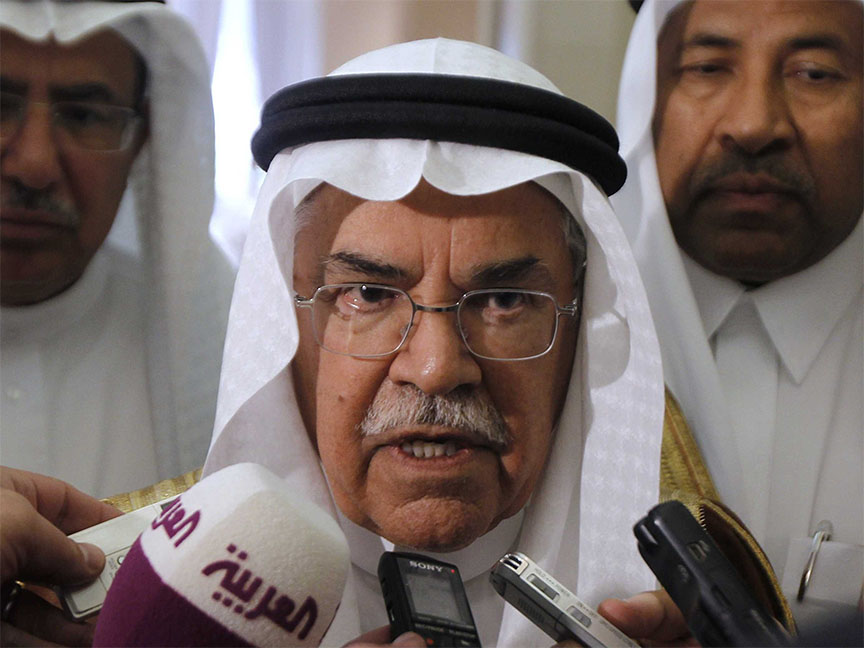
Major oil players will be gathering to discuss a potential production freeze on Sunday, April 17, in Doha, Qatar, in what some analysts have called “the most important meeting of the last three decades.”
Analysts have been hoping for a coordinated move ever since mid-February, when Saudi Arabia, Russia, Venezuela, and Qatar agreed to freeze production at January levels if other producers joined in.
Since then, several states, including the relatively better-off Gulf Cooperation Council members Kuwait and the United Arab Emirates, expressed willingness to support the deal.
But others weren’t as supportive. Most notably, Iran’s oil minister, Bijan Zangeneh, previously called the idea to freeze production “a joke.“
Plus, not everyone is planning to attend the Doha meeting. Libya said that it’s not going. Whether or not Iran actually shows up is a bit fuzzy after reports on Wednesday suggested that Zangeneh doesn’t plan on attending the upcoming Doha meeting, but will instead send a representative.
In light of all this, analysts aren’t exactly feeling optimistic about the meeting’s outcome.
A Macquarie Research team, led by Vikas Dwivedi, argued in a note to clients (emphasis added):
We have muted expectations for any meaningful impact on crude fundamentals from the April 17th Doha meeting. Practically, implementation of any accord that is reached would be so difficult that we view anything beyond foregoing splashy growth in 2016 as too optimistic.
The commodities-research team at RBC Capital Markets, headed by Helima Croft, also voiced doubts about the meeting’s outcome.
“As it stands now, we believe that the most likely outcome is that producers fail to close the deal and announce a freeze on Sunday, but that they instead pledge to continue to conversation and even possibly put an additional OPEC/non-OPEC meeting on the calendar for later in the year,” Croft wrote.
“Saudi Arabia and Iran do not appear ready to give sufficient ground to get a comprehensive freeze agreement done by Sunday, given current information,” she wrote.
“In order to get a breakthrough, we would likely need to see Saudi Arabia move beyond an outright insistence that Iran freeze production at current levels and/or for Iran to agree to a production ceiling that falls well short of their current 4 mb/d negotiating stance,” she continued.
But Croft also added that, given that the majority of oil producers — including Russia and the aforementioned GCC states — want a deal, their team can’t entirely rule out anything.
Even if some sort of deal is reached, however, it may not even have a huge impact.
“In the event an accord is reached, there will be very little impact on global crude supply/demand balances,” Dwivedi’s team wrote.
“The return of OPEC to country-level quotas replacing the current ‘free-for-all’ strategy is viewed as broadly positive, as is the elimination of the KSA/Iraqi production growth tail risk. However in light of the production growth already achieved in January by OPEC members and Russia, an accord will not significantly impact crude S/D balances,” they continued.
Notably, in the background of all this, it seems like global production is finally starting to cool down.
Credit Suisse’s Ed Westlake and Jan Stuart shared a chart on Wednesday showing that global oil production excluding Saudi Arabia slowed to approximately 83 million barrels per day in 2016, from about 84 million in mid-2015.
But the US Energy Information Administration‘s latest data showed that total world production is up to 96.27 million barrels per day in 2016, up from 95.76 million bpd in 2015.
In any case, analysts will be keeping their eyes and ears open for any news of possible coordination at Sunday’s meeting.
WTI crude is trading higher by 0.4% at $41.93 per barrel, and Brent crude is up 0.5% at $44.39 per barrel as of 11:52 a.m. EST.

Leave a Reply